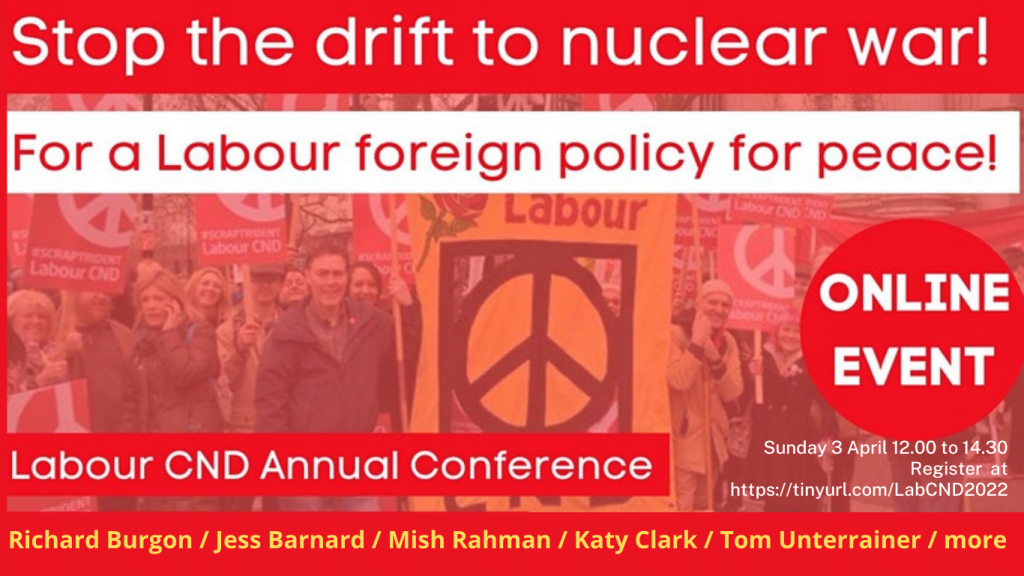The government energy security strategy means security for the nuclear lobby, but not for energy or climate
MUCH ANALYSIS has now been made of the UK Government’s British Energy Security Strategy since it was announced on 19th April. Namely its failure to meet its stated “mutually reinforcing goals” of security, sustainability and affordability, and address energy demand side measures i.e. energy conservation or reduction of use. Whilst some may welcome the Government’s ambition in aiming to produce 95% of electricity by 2030 through low carbon means, as ever there is no plan for how this will be achieved.
A roll call of technologies from offshore wind to nuclear power is no substitute for this, and further demonstrates that the UK’s energy crisis is part of the historic complexity and incoherency of government energy policy. Dieter Helm, an energy policy expert and recent adviser to the Prime Minister, has aptly referred to this as a “lobbyists utopia” and, in this case, the nuclear lobbyists are having a field day.
Energy policy is not rocket science. It is about achieving core objectives – security of supply and decarbonisation – and achieving them at the lowest cost. Neither will be met by purely private markets — Professor Dieter Helm
The British Energy Security Strategy says it will “reverse decades of myopia” by investing massively in nuclear power. This includes the deployment of 24GW of nuclear power by 2050 to meet around 25% of projected energy demand. This will be achieved, it claims, by developing up to 8 new nuclear reactors with one final investment decision (FID), therefore nuclear project commitment, in this Parliament, and two more in the next including Small Modular Reactors (SMRs). The Government claims this will provide “cleaner, cheaper power, lower energy bills and thousands of high wage, high skilled new jobs”.
Contrary to reversing decades of myopia, investment in new nuclear is far from long-sighted, and does nothing to help the climate or energy crisis.
On 4th April, the UN Intergovernmental Panel on Climate Change (IPCC) released the final part of its sixth assessment report on climate change. The first one on the science of climate change, was issued ahead of the COP26 climate summit in Glasgow. The UN Secretary General Antonio Guterres called this “code red for humanity”. The next part on adaptation, issued in February, was referred to by Guterres as an “atlas of human suffering”. This final part on mitigation talks of the shrinking timeframe – just years to stabilise the climate.
WE ARE WATCHING as the world is ravaged by conflict and war (not just in Ukraine but Yemen, Syria, Palestine, Ethiopia, the DRC among others) and “clobbered” by climate to quote Guterres again. It is irresponsible for our politicians to carry on as if old technology such as nuclear and business-as-usual energy models will solve the twin energy and climate crises. The liberalised and privatised energy model, particularly in the UK, is at the heart of our energy crisis.
Energy nationalisation of itself does not necessarily cure all the ills of our energy system. A lot depends on the design of a new public ownership model, and when the taxpayer is bailing out energy companies it defies logic not to pursue this. Labour’s current proposals for a windfall tax hark back to an energy policy of New Labour focused on making “liberalisation work better”. The party seems to have learned nothing from this, including that the unbundling or break up of the energy companies would not “hit hardest those least able to pay”.
Labour’s current proposals for a windfall tax hark back to
an energy policy of New Labour focused on
making “liberalisation work better”
History tells us otherwise. We are now in a very changed landscape for energy and environment policy. In the face of climate change, we have no time left to flip flop on energy strategy and this means firm opposition to nuclear power.
The Government can pluck any target out of thin air it likes but evidence – decades of evidence – tells us their ambition and reliance on economies of scale will not be achievable – on construction costs, delivery timelines, and finding solutions to deal with waste. Aside from an incompetent Government, market forces won’t fund this agenda and once again it will be foisted on tax payers. The new Nuclear Energy (Financing) Act, will frontload costs onto consumers, further increasing fuel poverty. Labour acknowledged this in the debate on the passage of the bill before it came into force, but still backed it.
NUCLEAR POWER is also at the behest of shifting geo-political relationships as evidenced by moves to remove China from investments in UK nuclear power projects. To suggest that nuclear gives us a home grown source of energy is quite misleading . Uranium is needed and the global leaders in supply are Australia, Khazakstan, Canada, and indeed Russia.
Investment in nuclear power will only lead to delays in building up our renewables capacity and generation, storage technology, and the system to deliver on this, the national transmission grid and distribution networks. Importantly too, investment in nuclear continues to detract from decades-overdue energy conservation measures that include retrofit and insulation of UK homes which would also help energy affordability.
The only way to address these crises is by having a national energy transition plan, based on renewable energy as a global public good which is essential to all our activities. Such a plan would enable us to map out the transition for workers, rather than lay waste their skills as is happening at present. It would harness their knowledge and experience, for the much needed work on decarbonisation.
Above all an energy security strategy must be for people and planet not nuclear lobbyists.


